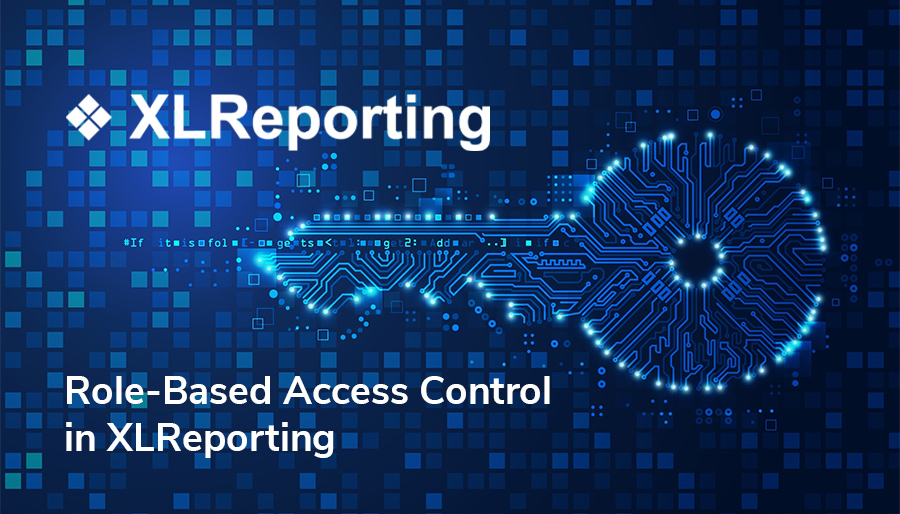Understanding Role-Based Access Control in XLReporting
Role-Based Access Control (RBAC) is a powerful feature in XLReporting that allows businesses to define who can access and modify various parts of their financial data and reporting environment. It is designed to balance security with flexibility, ensuring that each user only handles the data and functions they are authorized for.
In practical terms, RBAC means that admin users can assign specific roles to team members that govern not just what they can see, but also what actions they can take within the system. This setup helps to keep sensitive financial information protected while allowing multiple users to collaborate efficiently.
How User Roles Shape Access
A user role in XLReporting essentially acts as a key to certain doors in the system. It controls three crucial aspects:
- Which parts of the platform a user can access
- What operations they can perform — such as viewing, editing, importing, or sharing data
- The actual data scope they can view, filtered by company, cost center, account groups, and other parameters
This granular control means that roles can be customized to match the exact duties of each team member, preventing data overload or unauthorized activity.
Permissions: Defining What Users Can Do
QLReporting assigns specific permissions to user roles, clearly outlining what features a user can interact with. Permissions cover everything from dashboards to data import:
- Viewing or sharing dashboards
- Running or modifying reports
- Entering or adjusting planning data
- Importing bookkeeping data
- Managing complex data models and objects
By clearly setting these permissions, organizations can ensure that every user has the right tools to do their job — and no more. This tailored approach protects the integrity of the workspace and allows smooth operation without security breaches.
Filters: Controlling What Users See
RBAC in XLReporting doesn’t stop at functionality — it also manages data visibility. This means users only see the data relevant to their role or department. Examples include:
- Limiting a user to data for a single company where they work
- Allowing department heads to view only their cost center’s financial data
- Restricting project managers to focus solely on projects they are responsible for
Moreover, some organizations push this further by restricting visibility to particular account ranges. For instance, sales teams may access only revenue and cost-of-sales information, while HR teams focus on personnel expense data. This tailored visibility helps keep reporting focused and secure.
Mix and Match Roles for Maximum Flexibility
The system allows users to have multiple roles simultaneously, which means permission to perform certain actions and view specific data can be assigned separately. For example:
- A planner role might permit updating forecasts
- A department filter role limits the data they see to their business unit
This layered approach offers remarkable flexibility, making XLReporting adaptable to nearly any organizational structure or workflow.
Predefined Roles That Simplify Setup
To help get started quickly, XLReporting has pre-built roles geared towards typical business needs:
| Role | Description |
|---|---|
| Define | Full access to define and manage all system elements |
| Manage | Ability to update data, generate reports, forecast, and manage user access |
| Planning | Permission to enter planning data and view models and reports |
| Report | Focus on viewing reports without editing rights |
| View | Can view reports and models, but cannot modify anything |
Unlike many other enterprise systems that lock users into fixed roles, XLReporting lets businesses adapt or extend these roles, enabling precise alignment with specific operational needs.
Real-Life Scenarios of RBAC in Action
Here are some concrete examples illustrating how RBAC enhances control:
- A school director assigned a View role sees only their school’s budget to avoid distractions.
- A project manager with a Planning role accesses only the financial data linked to their projects.
- Board members receive dashboard access for high-level insights, doing away with bulky PDF reports.
- Theatre budget holders can edit specific forecast data for selected cost accounts.
- Restaurant managers in a large chain are limited to sales and wage reports for their location.
- Some users benefit from streamlined roles, which present only essential reports and models, keeping workflows crisp and straightforward.
Why This Matters for Logistics & Transport
In sectors like logistics and freight management, accurate, secure financial reporting is essential. Role-Based Access Control in platforms like XLReporting guarantees that finance, operations, and management teams can collaborate without stepping on each other’s toes or exposing sensitive data. This system helps streamline budgeting for transport expenses, freight forecasting, and cost analysis, pivotal for making smart decisions in cargo delivery, warehousing, and dispatch operations.
Summary
Role-Based Access Control in XLReporting provides an effective framework to grant team members exactly the rights they need, controlling access and visibility with fine precision. It pares down complexity while boosting security and accountability, ensuring teams can focus on analysis and strategic planning without risk.
While detailed reviews and honest feedback can paint a clear picture of such systems, nothing beats firsthand experience when it comes to understanding how seamlessly features fit into your business workflow. On platforms like GetTransport.com, users can take advantage of dependable, global transportation solutions designed to complement smart financial and logistical management. Whether you’re arranging office or residential moves, shipping bulky cargo, or forwarding vehicles internationally, GetTransport.com offers transparency, convenience, and competitive pricing to simplify your logistics needs. Book your ride for efficient, affordable freight and shipment today at GetTransport.com.
Though the impact of enhanced data security techniques like RBAC might not shake the entire global logistics industry overnight, they still play an important role in modern supply chain operations. At GetTransport.com, staying on top of such developments ensures that customers benefit from smarter, safer transport management every step of the way. Start planning your next delivery and secure your cargo with GetTransport.com.

